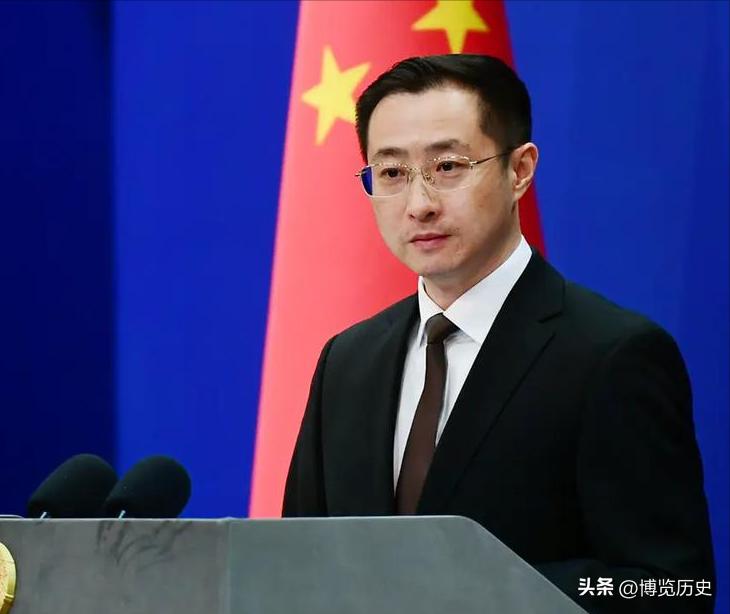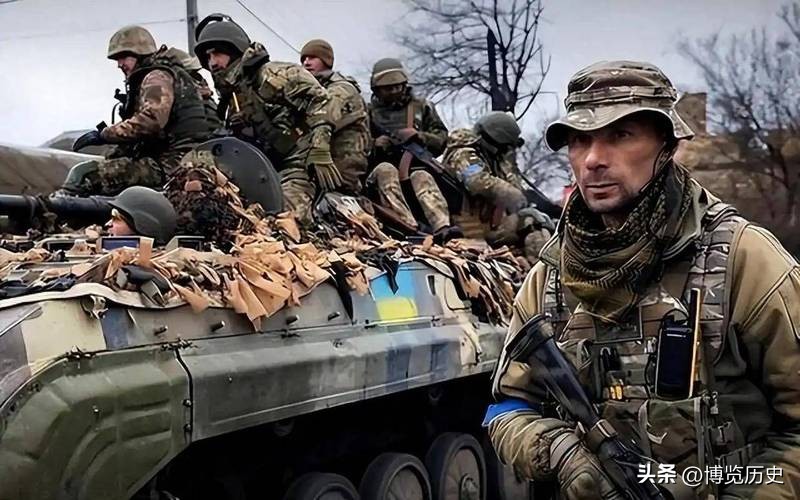Late at night on September 10, the situation in Europe suddenly became tense. Poland announced the shooting down of Russian drones, and NATO immediately launched Article 4. Almost at the same time, Poland announced that it would close all border ports with Belarus, and railway transportation was no exception. China-Europe Express - an important logistics artery between China and Europe, was suddenly "cut off" by Poland.
The Ministry of Foreign Affairs responded quickly, and spokesman Lin Jian's words were rarely tough, asking Poland to ensure the smooth operation of China-Europe freight trains. But Poland is firm in its attitude, citing that security risks have risen sharply. Is it a coincidence or a premeditation behind this series of actions? Why does Poland dare to "fight head-on" with China at this time? Is it true, as the outside world said, this is a precursor to the escalation of the conflict between NATO and Russia?
Why did China's cooperation project be stopped overnight? Will the interruption of China-Europe freight trains affect the entire Eurasian industrial chain?

In the early morning of September 10, the Polish military announced that it had shot down several Russian drones in the air, with at least 4 of the 19 aircraft being shot down, and the rest being recovered. Polish Prime Minister Tusk then spoke out, saying that this was the "closeest moment to war since World War II."
Public opinion was instantly detonated, and Poland's statement seemed to convey a signal that "war is coming" to the whole world. Shortly after Poland made this statement, the Ministry of Foreign Affairs summoned the Russian Interim Office to submit a notice of protest, and announced that the NATO Article 4 had been officially launched.
Although NATO responded immediately, its attitude seemed a bit conservative. Although Article 4 was initiated, it did not determine that the incident constituted an "attack" and did not mobilize the army. It only promised to conduct consultations.

Russia was extremely calm, insisting that the drone was not an invasion, but a staggering trajectory. The Russian Ministry of Defense said that the drone's range is limited and it is impossible to penetrate deep into the heart of Poland. The Kremlin even directly accused Poland and NATO of taking advantage of the situation. Just when this round of aerial "game" was not yet concluded, Poland made another unexpected move - completely closing the border port with Belarus.
This time, the impact is not only regional security, but also directly impacted the economic lifeline between China and Europe - the China-Europe Express. This train route starts from China, passes through Kazakhstan, Russia, and Belarus, and finally arrives at the Malashevich Port in Poland. It transports more than 20,000 trains annually, making it an important channel connecting the Eurasian continent.
As soon as the border was closed, the Malashevich port was immediately paralyzed, and more than 300 trains were forced to stay. A large number of goods are unable to enter the country, European retailers are in a hurry to stock, and European transportation costs are also rising rapidly.

For China, this is not a general logistics interruption, but the stability of the international supply chain is seriously threatened. On September 11, Chinese Foreign Ministry spokesman Lin Jian made a statement, emphasizing that the China-Europe freight train is an important cooperation project between China and Poland and that it should ensure smooth operation. He also called on Poland to take effective measures to ensure the normal operation of the train.
A clear attitude and firm position. So, why did Poland choose to "hard China" at this point in time? Is there any other meaning behind this? Some people believe that Poland's move is an attempt to put pressure on China by taking advantage of the China-Europe freight train issue, indirectly hoping that China will restrain Russia.
Although Europe has repeatedly accused China of providing "indirect support" to Russia, they are also very clear that China has close ties with Russia and that China cannot easily turn to the West. In Poland's view, the China-Europe freight train is the lifeblood of China's trade with Europe. Catching this line may force China to express its attitude on the Russian-Ukrainian issue.

But this abacus is obviously wrong. In his response, Lin Jian has made it clear that China hopes to resolve the problem through dialogue and consultation. China will not actively interfere in disputes between other countries, nor will it put pressure on Russia because of the border situation.
While Poland closed its borders, Russia and Belarus were also preparing for the "Western-2025" joint military exercise. The military exercise will be held in Belarus and western Russia, and it happens to be from September 12 to 16, just one step away from the Polish border.
Although the scale has been reduced compared to 2021, the exercise content is more confrontational, including simulated attack on NATO's eastern wing, displaying nuclear weapons and hypersonic missiles. This made Poland nervous, thinking that this military exercise was not only a "provocation", but also a prelude to "invasion".

Historical experience makes Poland extremely sensitive. Less than half a year after the 2021 Zapad exercise, Russia launched a special military operation against Ukraine. Therefore, Poland's choice to completely block the border this time seems to be a self-protection move, but in fact it exposes its deep panic and distrust of NATO.
Poland protested Russia in a high-profile manner while also making appeals within NATO, but few countries are truly willing to stand up for it. Although France, Germany and the United Kingdom verbally expressed their support for Poland, they did not mention Article 5 of NATO, and no country was willing to take serious action on this matter.
U.S. President Trump's attitude is also intriguing. He did not rush to express his opinion, but watched coldly and even predicted that "the good show has just begun." NATO's final decision is not to regard the drone incident as an "attack." This means that even if Poland shouts out, NATO will not send troops directly.

This attitude of "accompanying you through the process but not fighting with you" put Poland in an embarrassing situation. Russia's attitude is even more tough, not only denying the invasion of drones, but also accusing Poland of "self-directing and acting" and trying to take the opportunity to expand the conflict.
As more analysts believe that there may be "manipulation" of third-party forces behind this storm. The purpose is to completely break up between Poland and Russia, further overflow the already stalemate Russian-Ukrainian conflict and drag it into a larger battlefield.
In this game, China has always remained calm. Whether it is military exercises, border closures, or drone incidents, China has not been led by the pace. The Ministry of Foreign Affairs' response has always focused on one thing-the China-Europe freight train is a cooperation project between China and Europe and should not be disturbed by geopolitical interference.

More notable is that the number of China-Europe freight trains in 2024 hit a new high, with the transportation capacity reaching 1.57 million TEUs, which is enough to prove the importance of this project to both China and Europe.
This also means that Poland is not the only channel. If necessary, China can completely mobilize other routes to ensure that transportation is not interrupted. The key question at present is whether Poland is willing to continue to play the role of a bridge for China-Europe cooperation, or is it determined to turn itself into a "bottleneck" in China-Europe logistics?
From a strategic perspective, China will not be easily tied to any chariot. China's position has always been peace, dialogue and win-win situation. If Poland insists on its own, it will not only damage its position in Eurasian transportation, but also lose the trust of the Chinese market in it.

Behind this seemingly military game, the real struggle is about the supply chain, the right to speak, and the rebalancing of the future regional pattern. China has clearly stated its attitude, and next it depends on how Poland chooses.
Every step in the European situation has touched the global nerves from drone incidents to border blockades, from military exercise alerts to train interruptions. China has always kept pace, neither being held back nor being provoked. The China-Europe freight train will not stop due to a country's shaken movement, and China's door to opening up to the outside world will not be closed because of the hustle and bustle of Europe.
The current situation is complex and changeable, and China has always adhered to its diplomatic stance of non-interference, non-alignment, and non-confrontation. The smooth operation of China-Europe freight trains is not only a trade issue, but also a symbol of global stability. Poland's choice will give answers in the coming weeks.
Information source:
Tenire Polish-Russia relations affects the China-Europe freight train? Ministry of Foreign Affairs responded
2025-09-11 16:31·Direct News













